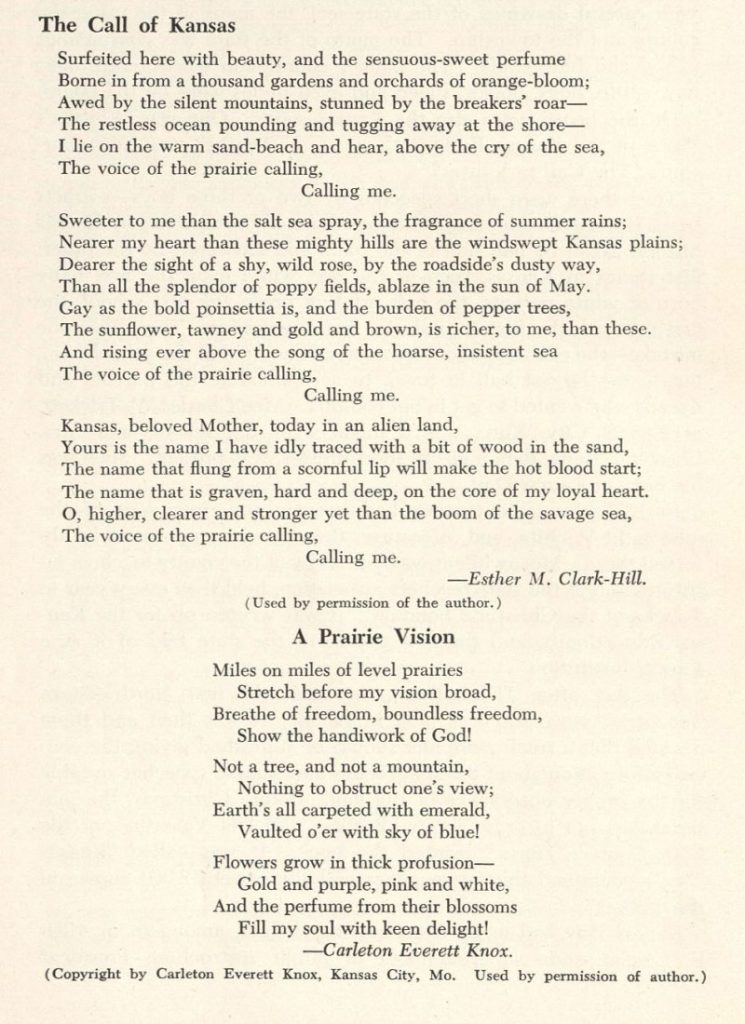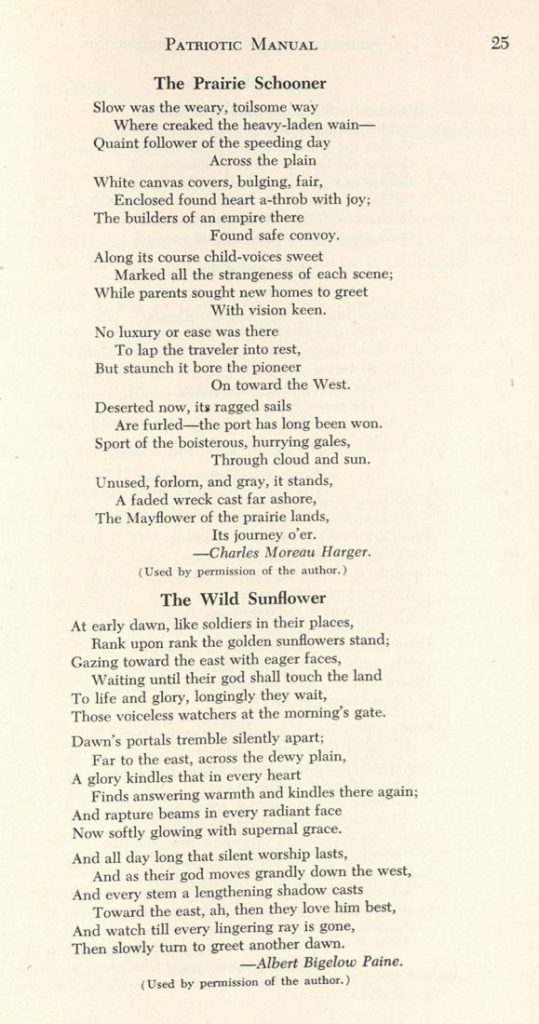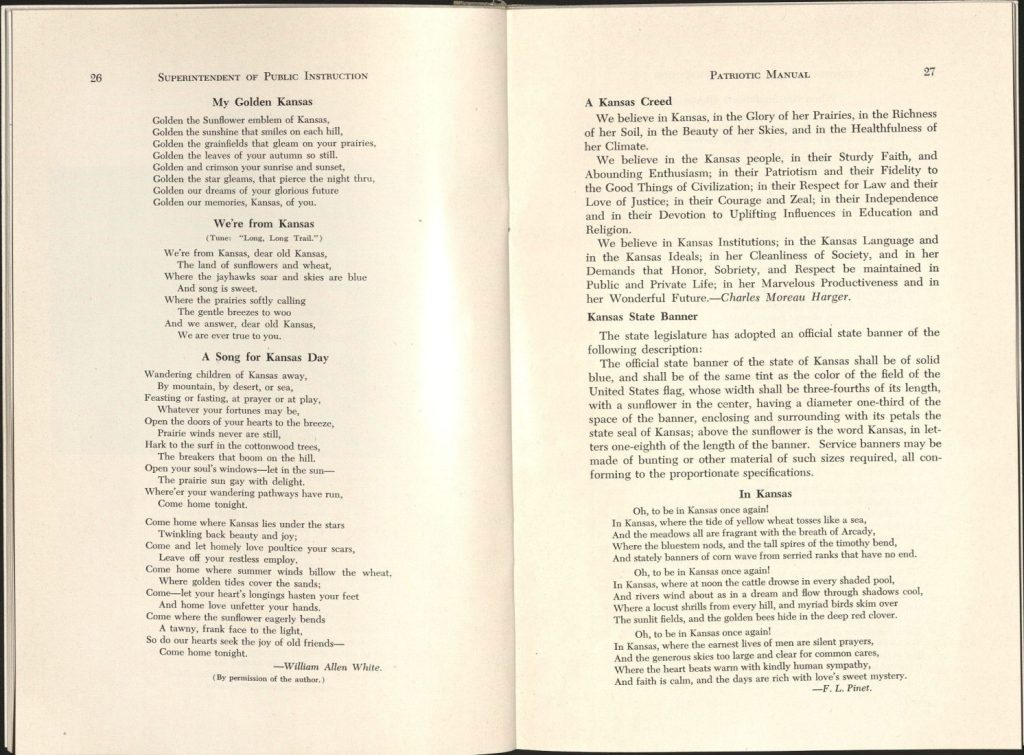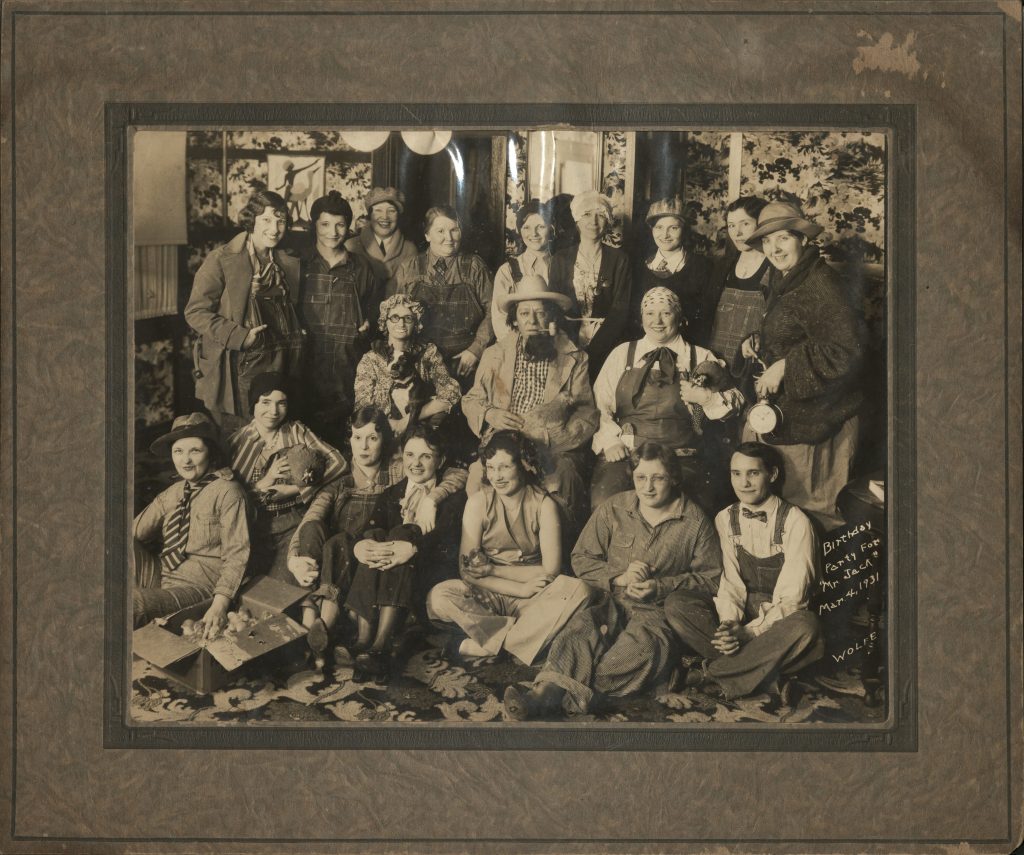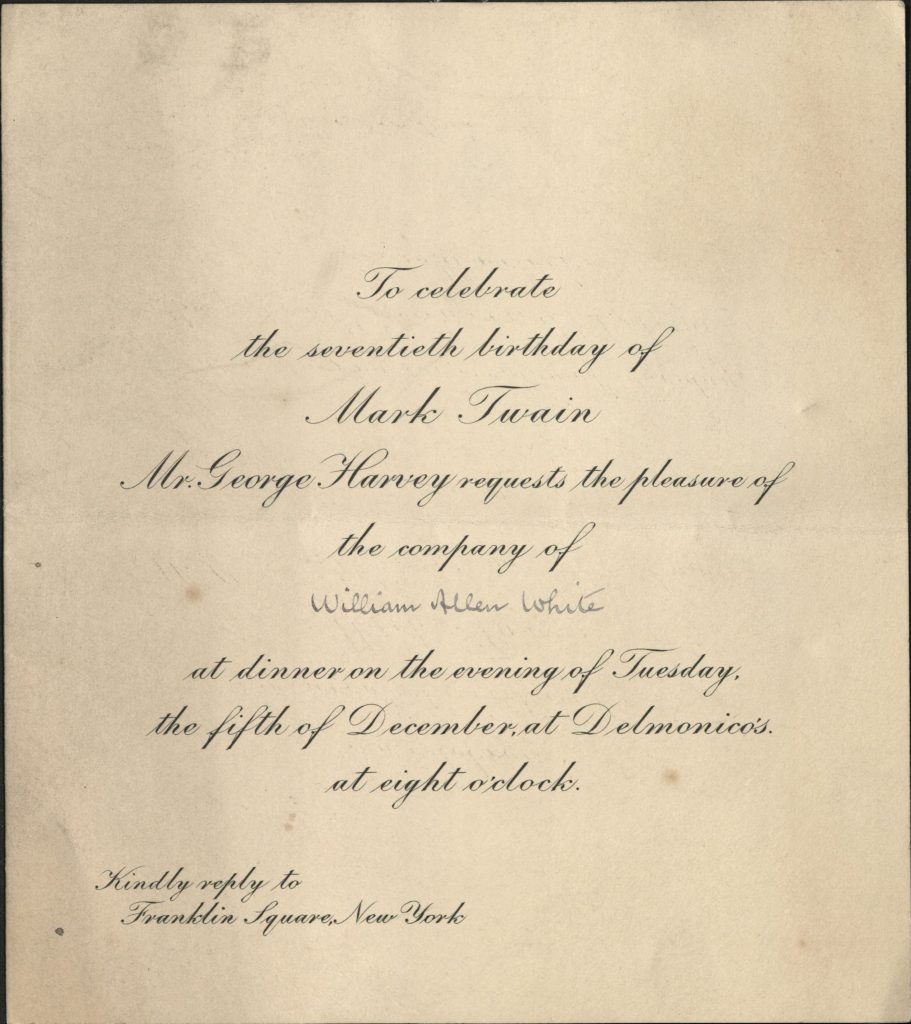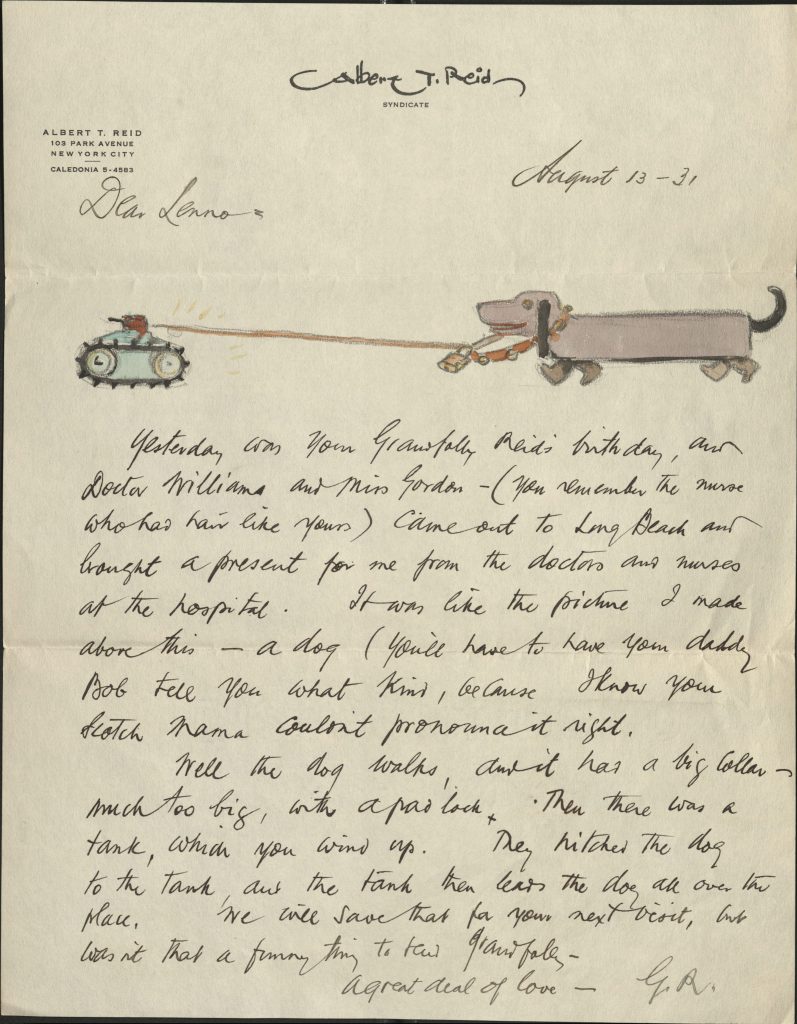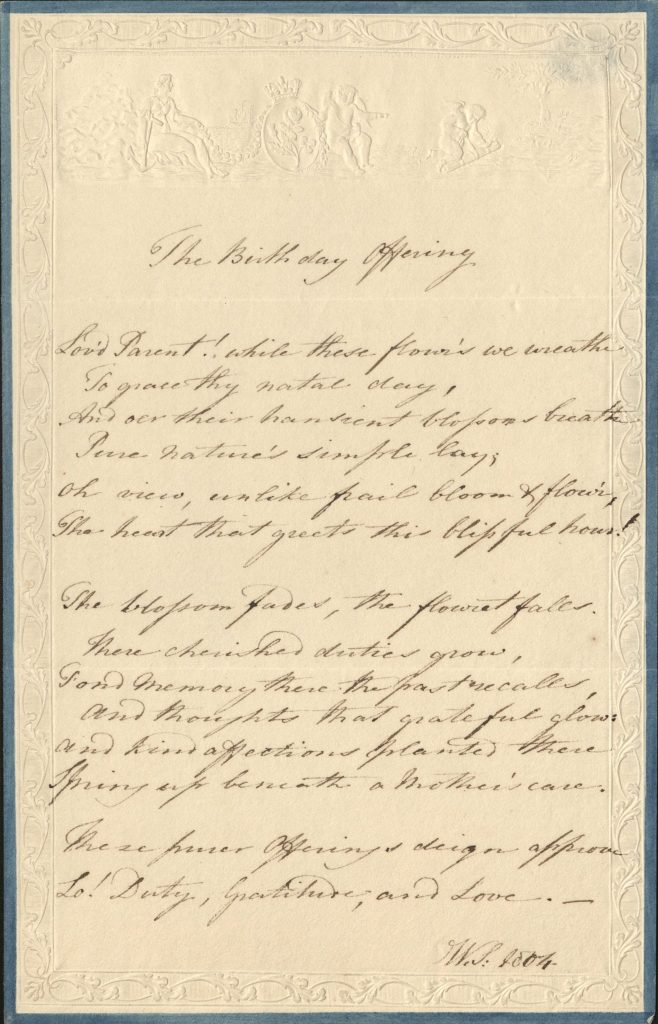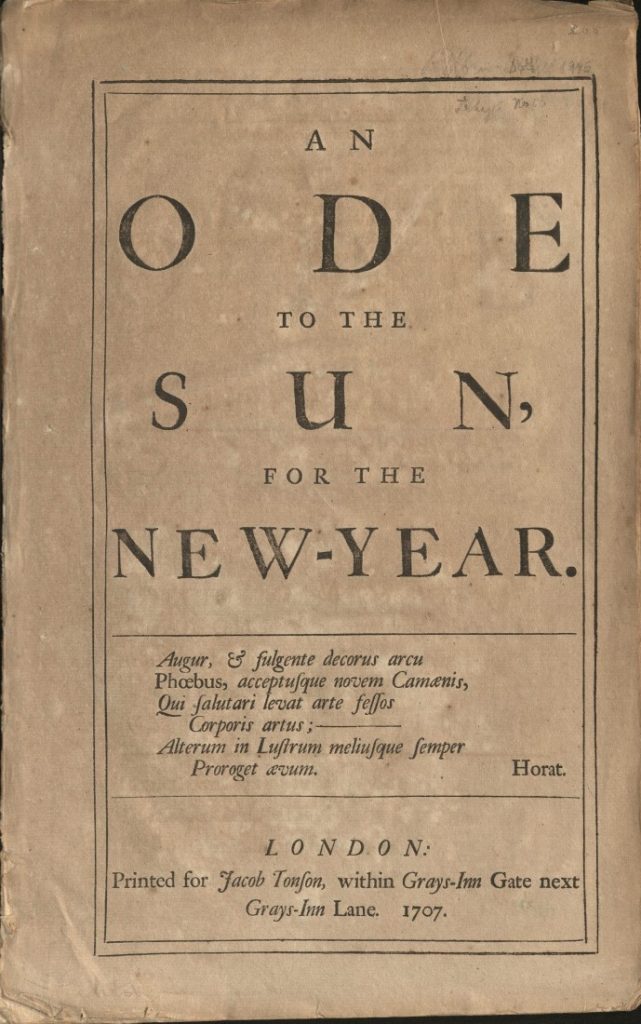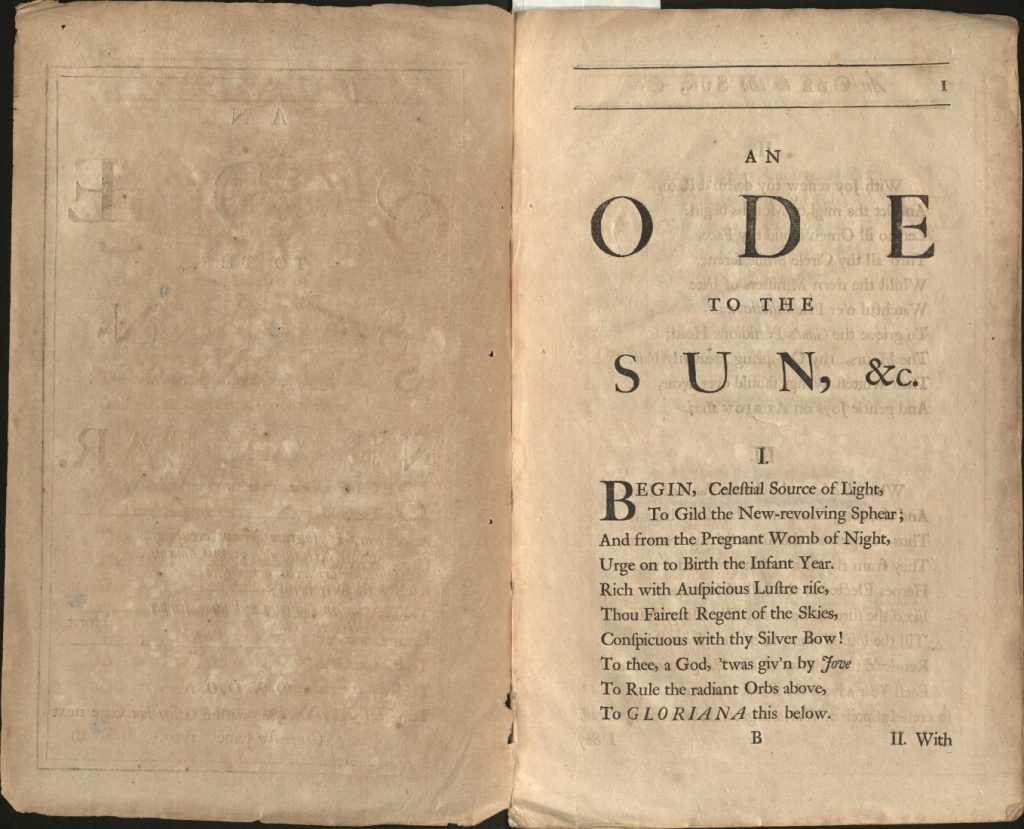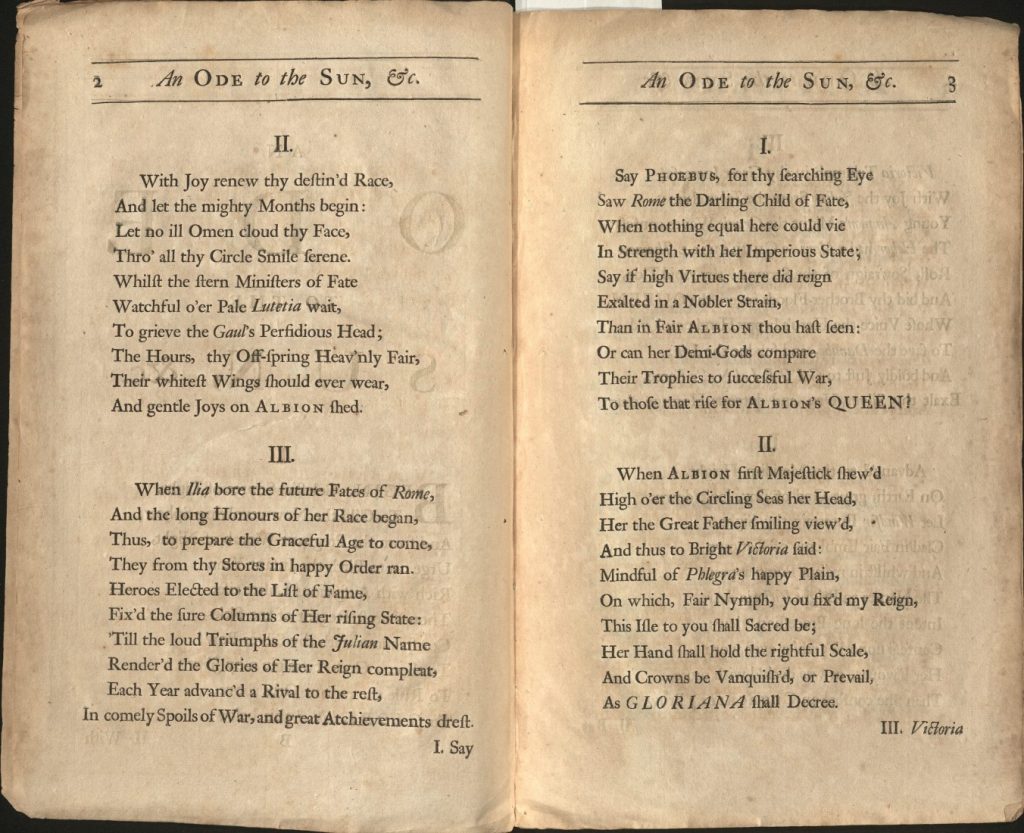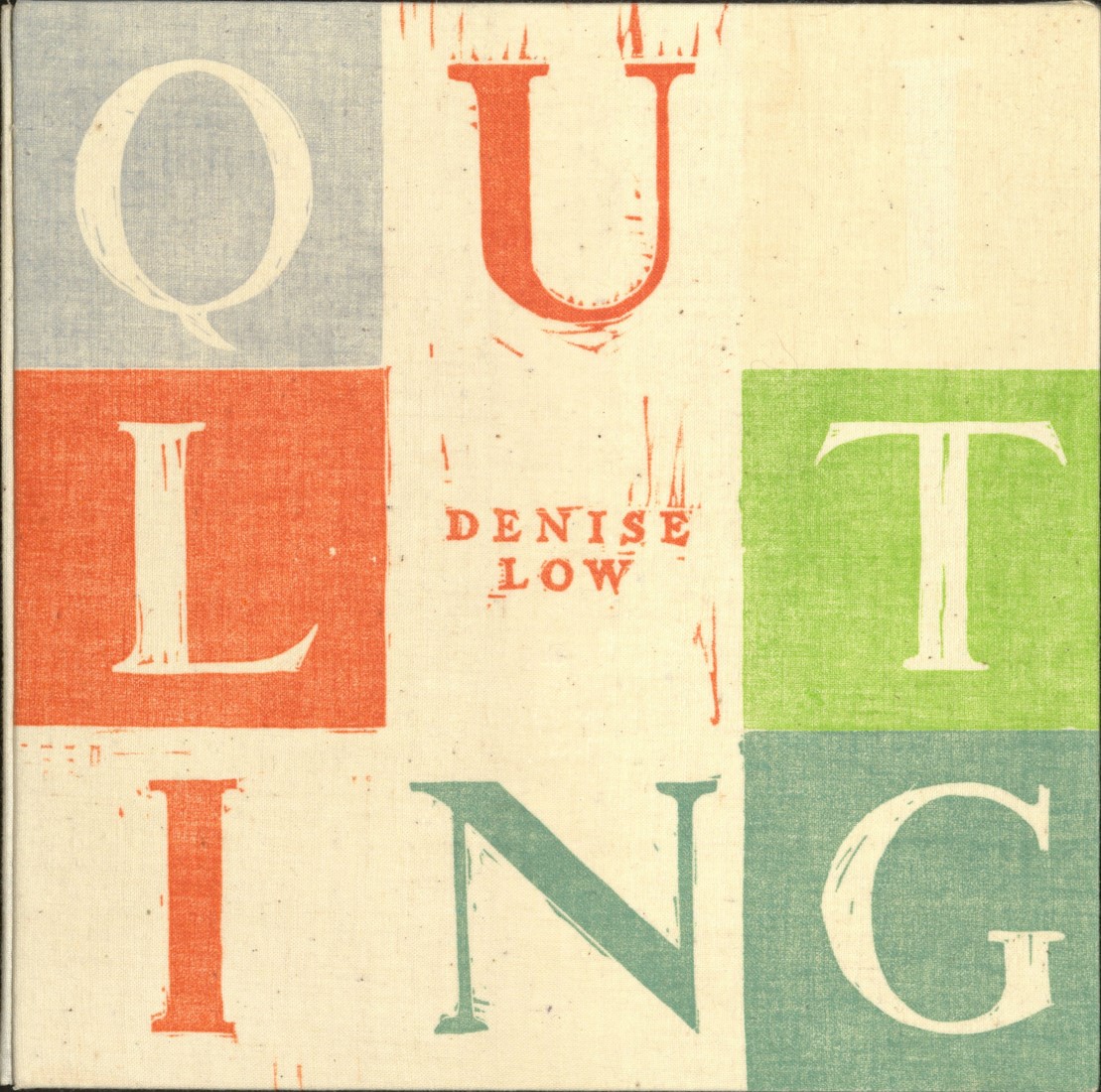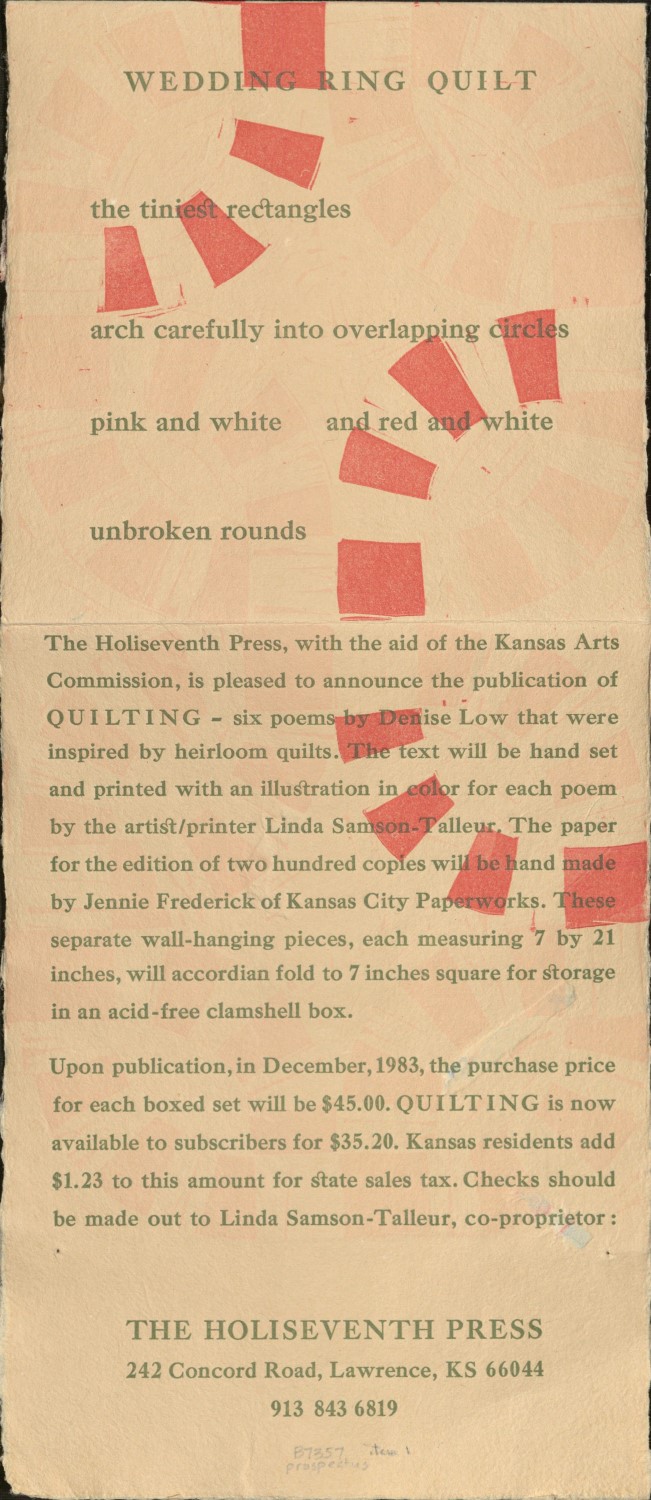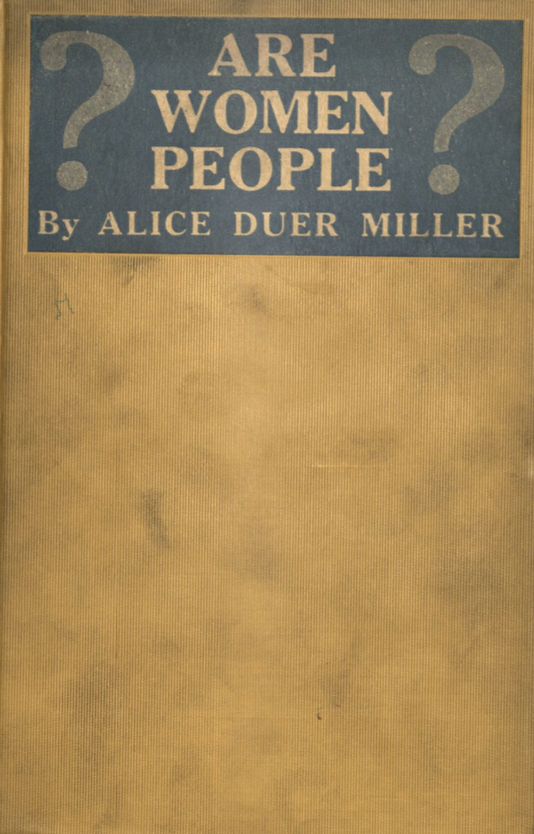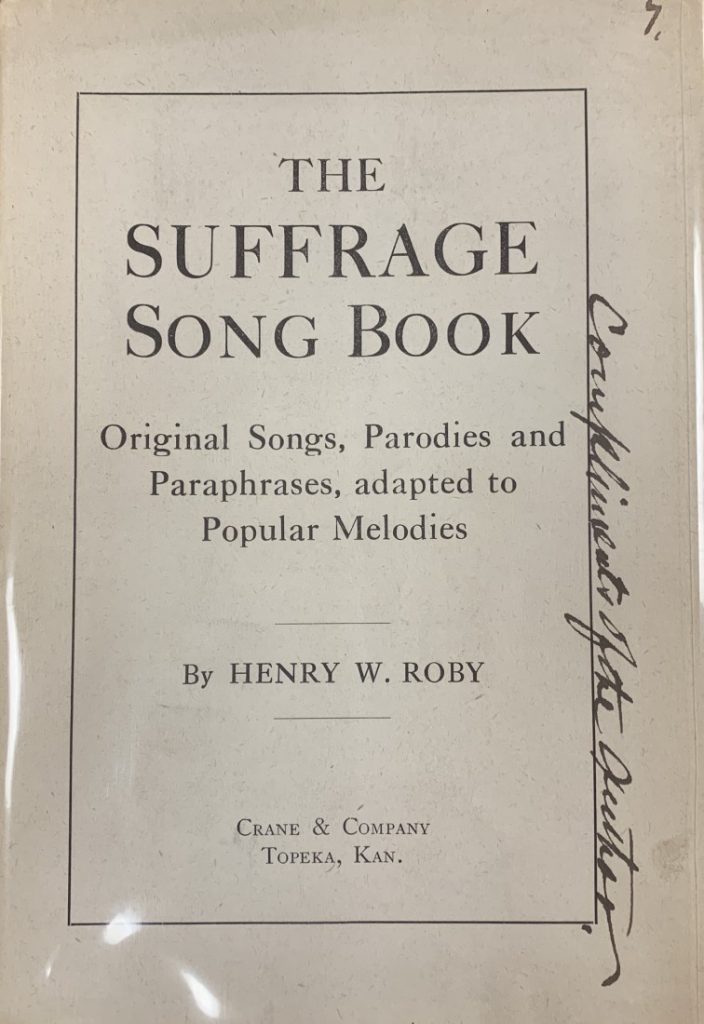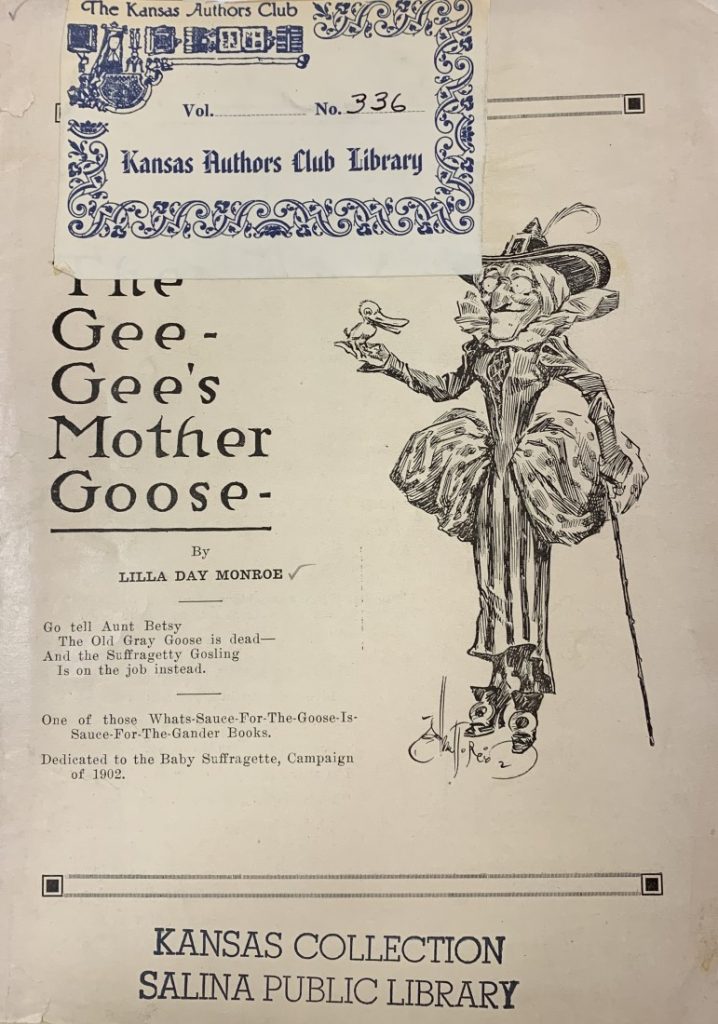A Patriot’s Guide to Kansas Day
January 29th, 2024Any red-blooded Kansan holds these truths to be self-evident: the state flower is the sunflower, the state bird is the meadowlark, the state tree is the cottonwood, and Kansas Day is January 29. We celebrate this day as the anniversary of the entrance of the state to the Union in 1861. This year (2024) the state turns 163 years old (though she doesn’t look a day over 130). But as our comrades across the state and beyond observe Kansas Day, some may wonder how to properly celebrate.
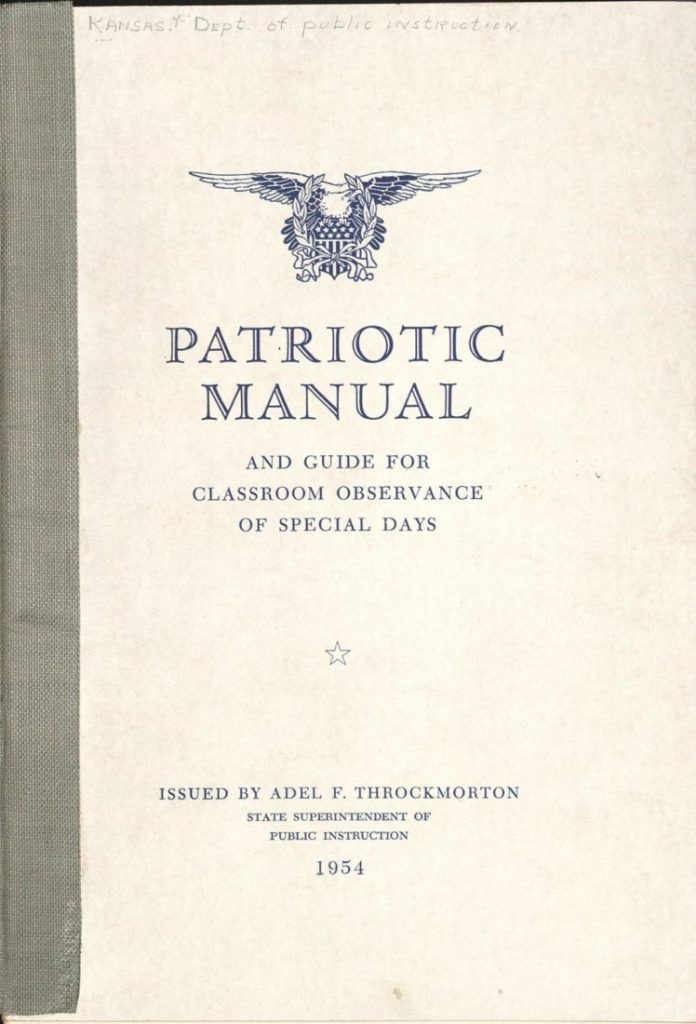
Unsure of how to appropriately commemorate the anniversary of statehood, we can look to the Patriotic Manual published by the state in 1954. Under the section on Kansas Day, it is said that Kansas Day was born in Paola in 1877, when schoolchildren became so awakened to patriotism that they searched encyclopedias and called upon their parents and community to furnish local history and interesting facts about Kansas. When Kansas Day came, the school blackboard was covered with careful drawings of the state seal and maps, along with songs and poems, with the state motto “Ad astra per aspera” written in crimson and blue chalk.
Along with the fabled history of Kansas Day, the Patriotic Manual contains state laws describing the Great Seal of Kansas and the Capitol building in Topeka as well as a selection of songs and poems that embody the fine and glorious spirit of the state. These poems are reprinted below.
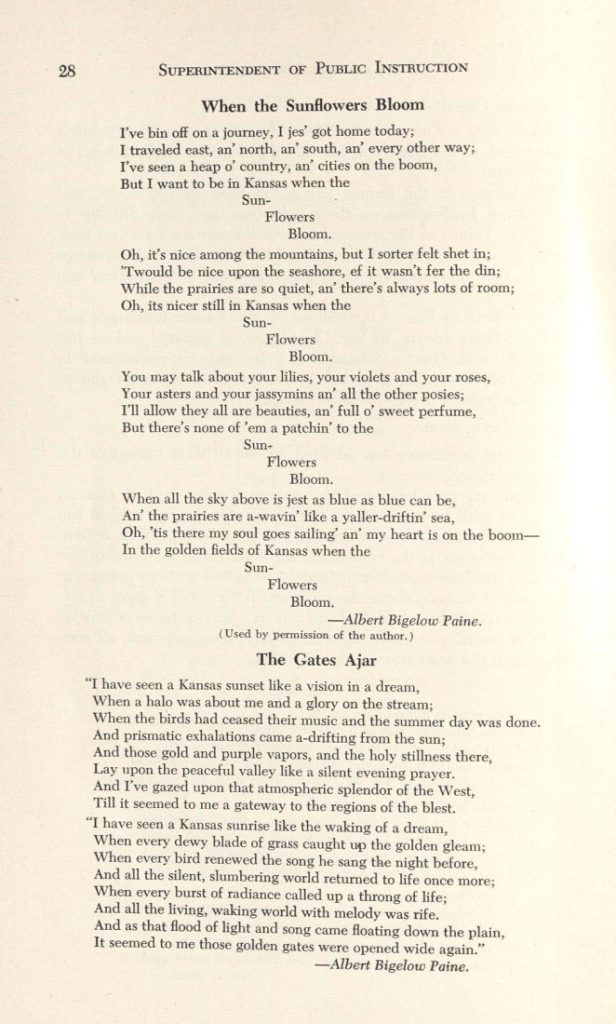
This patriotic manual from 1954 and an updated edition from 1973 are housed at Spencer Research Library. For digital access, the guide has been digitized by the Kansas State Library.
Ad astra per aspera and happy Kansas Day!
Phil Cunningham
Kansas Collection Curator

